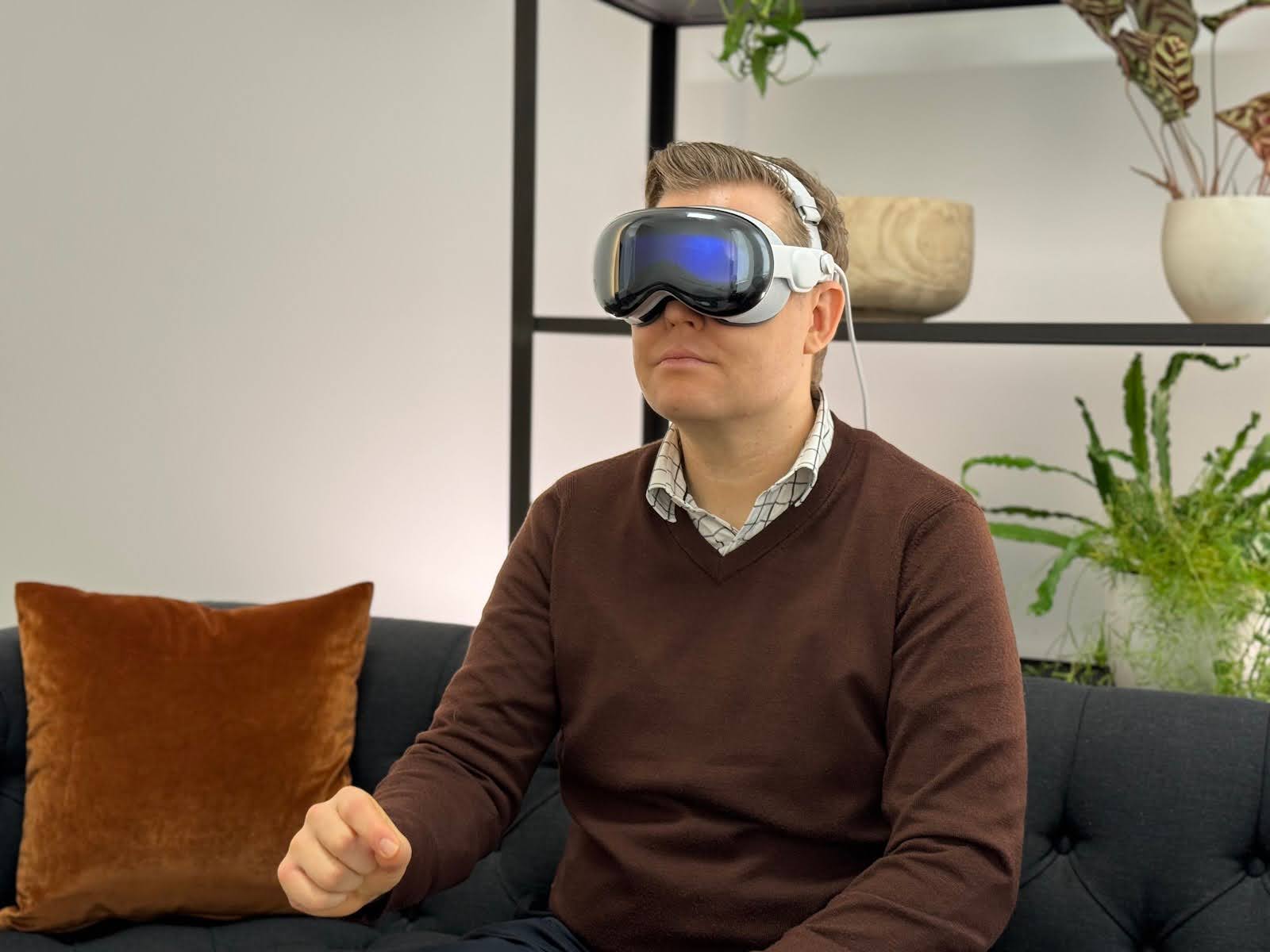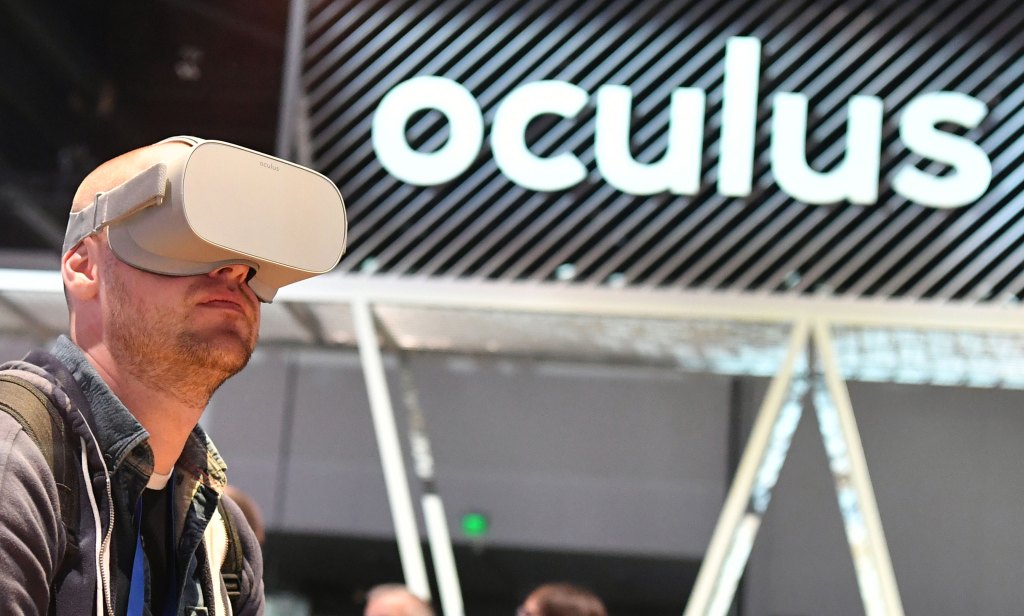Every year, Time Magazine issues a list of the 200 best inventions of the past 12 months. Frankly, I don’t know how the editors do it. The dirty secret of this job is that true, game-changing inventions rarely cross your desk. In fact, you’re extraordinarily lucky if you average one a year.
Oculus’ Rift prototype felt like just such a device when it first crossed my radar more than a decade ago. More than anything, the system resembled a hastily duct-taped ski mask. It was a remarkable presentation, in hindsight — an all-too-rare glimpse into a plucky entrepreneurial tech spirit. It evokes a flood of romanticized images of Homebrew Computer Club nerds soldering together circuit boards in South Bay garages.
A decade has now passed since Meta (née Facebook) announced plans to acquire the startup for $2 billion. A decade after the deal was announced, it’s safe to say that the VR headset hasn’t changed the world we live in. But there’s always that little-discussed middle ground between transforming the human condition and just being an abject dumpster fire of failure. So, where, as of April 2024, does the Facebook/Oculus deal rank?
“Immersive gaming will be the first, and Oculus already has big plans here that won’t be changing and we hope to accelerate,” Mark Zuckerberg wrote at the time. “After games, we’re going to make Oculus a platform for many other experiences. Imagine enjoying a court side seat at a game, studying in a classroom of students and teachers all over the world or consulting with a doctor face-to-face — just by putting on goggles in your home.”

Facebook’s founder referred to the Oculus Rift as a “new communication platform,” comparing it to computers, the internet and smartphones before it. He suggested that the “dream of science fiction” was now a reality — one that Facebook had suddenly cornered. It’s hard to overstate how transformative Zuckerberg believed the technology to be. It was, after all, the gateway to the metaverse.
Should anyone doubt the company’s commitment to the concept, in late 2021, it rebranded itself as “Meta,” killing off the Oculus brand the same afternoon. Surely social media platforms wouldn’t dominate online discourse forever. They would eventually give way to something wholly new. Except that despite that $500 billion rebrand, Zuckerberg and company never did a particularly good job of defining the metaverse. They simply insisted that it was an exciting thing that you should be excited about.

I suspect that were you to perform a blind poll, the majority of people who are familiar with the term meta would describe something like Second Life, the virtual world that to be on its fifth or sixth life by now. Mark Zuckerberg is probably as guilty as any single person for perpetuating that perception, happily working his hardest to make the company’s Horizon Worlds platform synonymous with conceptions of the metaverse. Remember what a big deal it was when its avatars finally got legs?
So where are we now? It’s complicated, obviously. From a purely financial standpoint (the only language shareholders speak), things are bleak. Between the end of 2020 and the first quarter of 2024, the company’s metaverse division lost $42 billion. That’s roughly 21x the price it paid for Oculus, not adjusting for inflation. That’s a little over one-fourth a Zuckerberg (not adjusted for inflation — i.e., BJJ-related bulking).
Why is Meta hemorrhaging that much money? The simple and cynical answer is, because it can. The corporation made $134 billion in revenue and $39.1 billion in net income last year. That’s not to say that having a division that’s $42 billion in the red over four years doesn’t impact its bottom line, of course. But Facebook believes it’s playing the long game here.

It’s widely believed that Meta sells its Quest headsets at a loss. This is despite the fact that the company has easily the best manufacturing scale in the industry. It doesn’t take an MBA to understand that this is a terrible short-term strategy, but again, Meta believes it’s playing the long game. The end game is getting enough of these devices into people’s hands to reach a critical mass of adoption, word of mouth and developer content. If you can’t do that while turning a profit, well, you gotta spend money to make money, right?
It continues to be a massive bet. How long the company is willing to play the long game here, however, largely comes down to how much patience Meta’s shareholders have. If it can truly saturate the market and corner content, it will be better positioned to capitalize on mixed reality’s hypothetical exponential growth.
It has already edged the competition out of the market and generally sucked the air out of the room. As an HTC Vive exec told me back in February at MWC, “I think Meta has adjusted the market perception of what this technology should cost.” Other companies can’t compete on price and content in the customer space, so the savviest of the bunch have moved over to enterprise, where clients have much deeper pockets.
If you judge the company’s journey in terms how much of the VR headset market it controls, it’s been a wild and unprecedented success. According to IDC, Meta had a 50.2% share as of Q2 2023. Of course, we’re not talking about smartphone figures here. As of early 2023, Meta was estimated to have sold 20 million headsets. At the end of the year, the Quest 2 was still outselling the Quest 3. One part of the Meta thesis has absolutely played out: People are looking for an inexpensive on-ramp to the technology.

When Apple announced the Vision Pro at WWDC 2024, I received a flood of unsolicited comments from VR headset manufacturers all stating they saw the iPhone maker’s headset as validation for the space. You can cynically (and correctly) point out that everyone says some version of that when Apple enters their vertical, and many of them don’t make it out the other side in one piece.
But I concur that Apple throwing its hat in the ring after decades of failed VR attempts does constitute validation. That’s absolutely the case for Meta. Zuckerberg happily used the opportunity to point out that his headsets were (1) significantly less expensive and (2) didn’t require an external battery. Meta also had a large head start in terms of VR-specific content. Naturally, Zuckerberg also insisted that his product was vastly superior in spite of the significantly lower price point.
“It seems like there are a lot of people who just assumed that Vision Pro would be higher quality because it’s Apple and it costs $3,000 more,” he noted in February, “but honestly, I’m pretty surprised that Quest is so much better for the vast majority of things that people use these headsets for, with that price differential.”
Sorry, Zuck, the Vision Pro is the more impressive piece of technology. Whether it’s $3,000 more impressive is a different conversation. What I can tell you right now is that the pricing gulf puts these products into different categories. Apple is targeting business customers at that price point, while Meta is far more committed to democratizing access by — again — losing money on a per-unit basis.
It’s still early days for Vision Pro — and, really, mixed reality in general. If it ever does truly become ubiquitous, it will be the result of countless hard-fought battles. As we mark a decade since the Oculus acquisition, I find myself returning to the above Zuckerberg comment: “Imagine enjoying a courtside seat at a game, studying in a classroom of students and teachers all over the world or consulting with a doctor face-to-face — just by putting on goggles in your home.”
Re-reading this from the vantage point of 2024, it strikes me that he was right about the content, but not necessarily the delivery mechanism. The past four years have dramatically impacted how we interact with each other, the world and day-to-day activities. The pandemic de-stigmatized so many virtual activities. But for the time being, no headsets are required.































Comment